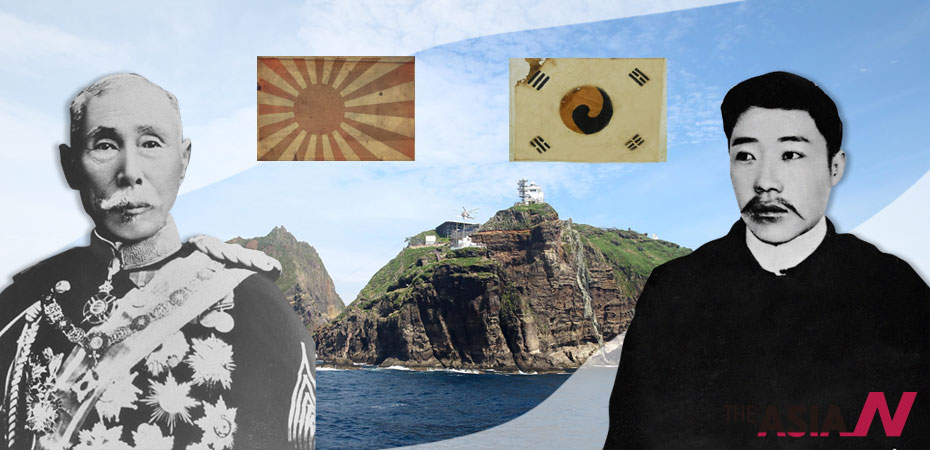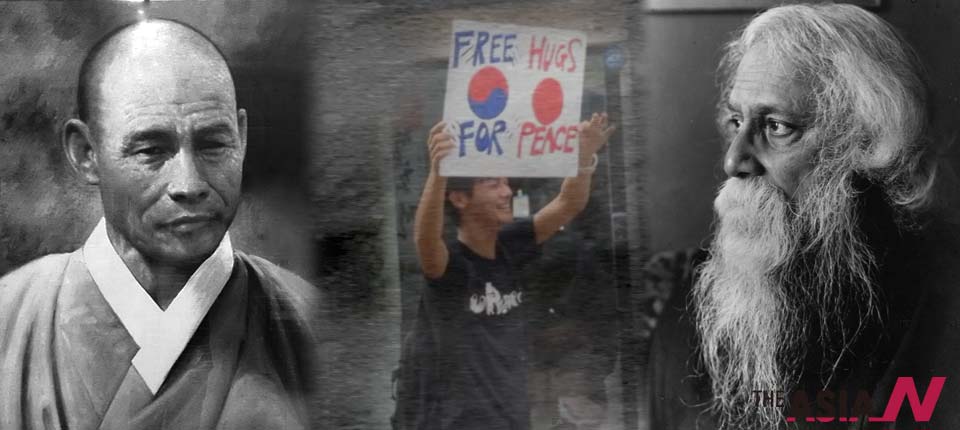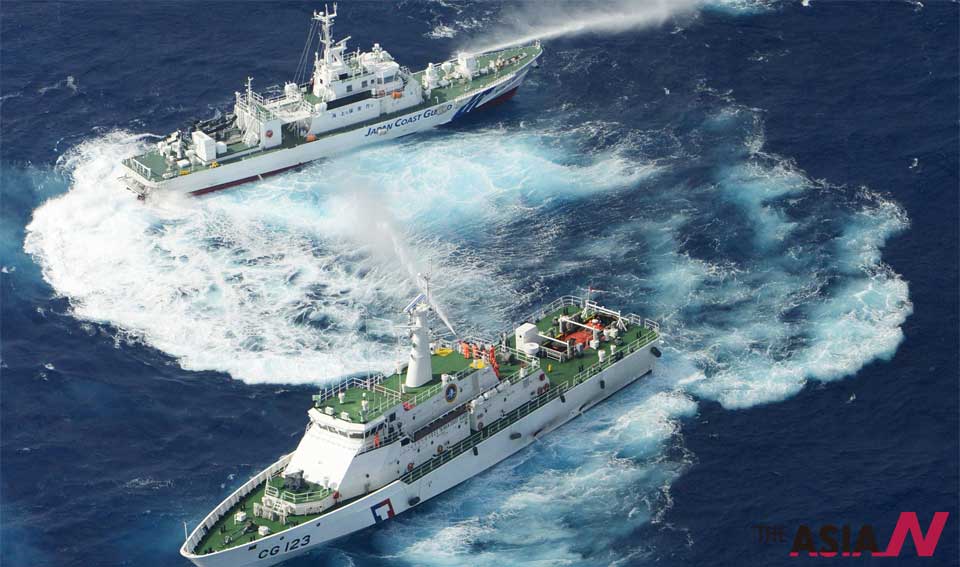
The duplicity of North Korea’s sentiment toward Japan
Joint Project between the Northeast Asian History Foundation and The AsiaN
![]()
*Editor’s Note: Security in East Asia is swaying in a rough sea. North Korea’s nuclear crisis has been highly escalated amid existing territorial disputes and deep-rooted conflicts between nations in the region. South Korea, China and Japan, the countries directly involved, are all looking for a new order in the process of power shift. In search of sensible solutions for historical conflicts in East Asia, The AsiaN and the Northeast Asian History Foundation have jointly featured a column series by experts on current issues in East Asia. The contribution series of in-depth analyses, insights and strategic solutions will be provided in four languages including English, Korean, Chinese and Arabic.
[Expert Column Series on Current Issues in East Asia] ⑧ The duplicity of North Korea’s sentiment toward Japan
When someone living in the U.S. or Europe is asked this question, they might answer “South Korea” or “China” as these two countries often appear in international news concerning its anti-Japanese sentiments.
However, the answer is North Korea. I was born in North Korea, have been working as a reporter in South Korea for more than 10 years and I had lived in China for more than a year. This is how I was able to understand the anti-Japanese sentiment in these three countries, which were occupied by the Japanese in the past.
Anti-Japanese sentiment in North Korea has not been such a big issue because North Korea’s other issues have received much attention in the international community such as its nuclear weapons, missiles and counterfeit U.S. dollars. Yet, in reality, North Korea bitterly hates Japan. This fact does not receive much attention as people are not interested in the bully’s feelings, but its atrocious actions.
There are various reasons for North Korea’s hatred toward Japan. The historical commonality between the two Koreas and China is that these three countries suffered from Japanese colonial rule. However, North Korea is different from South Korea and China because North Korea finds its roots in the resistance to Japan.
Kim Il-sung became the leader of Pyongyang by engraving himself as an anti-Japan hero in the North Korean citizens’ minds. Furthermore, from the early 1970s, North Korea has taught that Kim Il-sung’s father Kim Hyung-jik led the civil uprising on March 1, 1919, the nation-wide independence movement against Japan. Also, North Korean students have been indoctrinated to believe that Kim Il-sung, a seven-year-old boy at the time, participated in the movement as well. On these lines, Kim Il-sung’s family fought against Japan and this historical legitimacy has been handed down to Kim Jong-il and Kim Jong-un.
Even though the leader of South Korea or China is able to shake hands with its Japanese counterpart, this may be difficult for Kim Jong-un because according to North Korea’s logic that deeply values one’s lineage he is a grandson of the anti-Japan hero.
There is another reason for North Korea’s anti-Japanese sentiment. Japan was responsible for the division of the Korean Peninsula, one of the main causers of the Korean War, and became rich by taking advantage of the war.
The Koreas have different positions on this point. During the Korean War, Japan was an ally of South Korea. However, to North Korea, Japan was an enemy who made bombs for the U.S. and fixed their combat planes and warships. Bombs, combat planes and warships made in Japan devastated cities and countryside alike and left numerous casualties. North Korea believes that behind Japan’s growth, there was much blood-shedding of North Koreans. Therefore, there is no doubt about stronger anti-Japanese sentiment in the North than in the South.
In this regard, the expression “Japanese raiders” often appears in North Korean textbooks such as in headlines: “The Great General Kim Il-sung defeated the Japanese raiders” and “Japanese raiders committed unpardonable acts of brutality to North Koreans.” Even though anti-Japanese sentiment is serious in South Korea and China, belittling expressions like “Japanese raiders” or “Jjokbari” do not appear openly nor often in textbooks. Therefore, it is natural that anti-Japanese sentiment is greatest amongst North Koreans.
Moreover, China and South Korea have had much cultural exchange with Japan and their economies are highly interdependent. But, North Korea is far from such exchanges.
There is another reason for North Korea’s hatred. After Kim Jong-il admitted to the kidnapping of some Japanese people to Prime Minister Koizumi in 2002, Japan changed its attitude toward North Korea 180 degrees and blamed it for the kidnapping. Before Kim Jong-il’s confession, Japan had showed its intent to normalize diplomatic relations and to help North Korea economically. To the North Koreans, Japan’s change of mind must have felt like a stab in the back. North Koreans, who long for massive economic support from Japan as a reward for opening up diplomatic relations, probably felt cheated again by the cunning “Japanese raiders.”
Moreover, from the North Koreans perspective, the kidnapping incident did not seem to be such a big problem. They might think that when Japan conquered North Korea millions of their ancestors were requisitioned as forced laborers or comfort women, but there was no apology or compensation from Japan. Comparing to the historic brutality North Koreans suffered, the kidnapping of several Japanese may seem like a trivial matter that Japan is overreacting to. The Japanese inflicted international ignominy Kim Jong-il, God of North Korea and son of anti-Japan fighter, received must have been an intolerable insult and disgrace.
If a South Korean sports team beats Japan, shouts of hurray would burst out from North Korea even though the two Koreas are standing opposite to each other as enemies. Anti-Japanese sentiment is one of rare sentiments and emotional codes that can bring the two Koreas together.
At this point, here is one more question. “Which country favors Japanese goods the most?”
To be honest, it is hard for me to answer this question because I do not know all countries very well. But, if the answer is restricted to South Korea, China and North Korea, I can answer with confidence, North Korea.
Even though North Korea is the nation of strongest anti-Japanese sentiment, North Koreans ironically adore Japanese goods. Both in South Korea and China, people can easily purchase Japanese goods and can also compare their national goods with those of the U.S., Europe and other countries. However, South Korean, American and European goods cannot be sold in North Korea and the quality of North Korean goods is too pitiful for words. With their only other choices as Chinese and Japanese, their choice of preference is needless to say.
The best goods in North Korea are Japanese. The number of Japanese goods a person owns is a measure of their wealth. That is why North Koreans are crazy about the Japanese goods. Of course, due to favorable comments on South Korean goods these days, Japanese goods are less preferable than before.
It is a mystery why North Korea, which finds its regime’s legitimacy in anti-Japanese sentiment, does not forbid the import of Japanese goods. But here is a hint. When the son of the anti-Japan fighter Kim Jong-il was living, he loved Japanese goods including Japanese foods. He even called a chef from Japan and gave great favors to him. Furthermore, Ko Young-hee, Kim Jong-il’s third wife who lived with him the longest among his wives and the mother of Kim Jong-un was also born Japan.
If someone asks me if it is possible for North Korea and Japan to become on closer terms, my answer is “sure.” The key is North Korea’s duplicity toward Japan: their emotional hatred toward Japan and love for Japanese goods. At least Japan has the links of money and goods to help promote friendly relations with North Koreans. A friendship is naturally formed when one gives what the counterpart likes.
North Koreans long for Japan to pay indemnity for the damages of their colonial rule. North Korea faces a dismal economic crisis and maybe this is the only hope they can dream of. They expect to receive about 10 billion dollars of indemnity. Also, as Japan has neither apologized nor given any compensation for the damages of their colonial rule, North Korea thinks Japan should take responsibility to support the revival of North Korea.
However, the problem is the North Korean regime, which is treated as a gangster or a rascal in the international community. If Japan’s support to North Korea is support to the Mafia, this will never be allowed.
Then, the answer is simple: improving the relationship after the gangster is gone. The problem is whether Japan feels the need to improve relations with North Korea by providing economic support.
If Japan wants to get the respect of the international community as a responsible country, it should be burdened by North Korea’s debt and should compensate someday. If you look back, Japan is responsible for the division of the Korean Peninsula and North Korea’s desperate state.
Although I hate the North Korean regime more than anyone else, I cannot help getting angry by observing what Japan’s doing in front of the media to show themselves as a victim of kidnapping. Of course, I do not mean to talk in favor of North Korea’s kidnapping. However, Japan has to apply the same standard to itself. If North Korea is an aggressor, what kind of aggressor is Japan?









